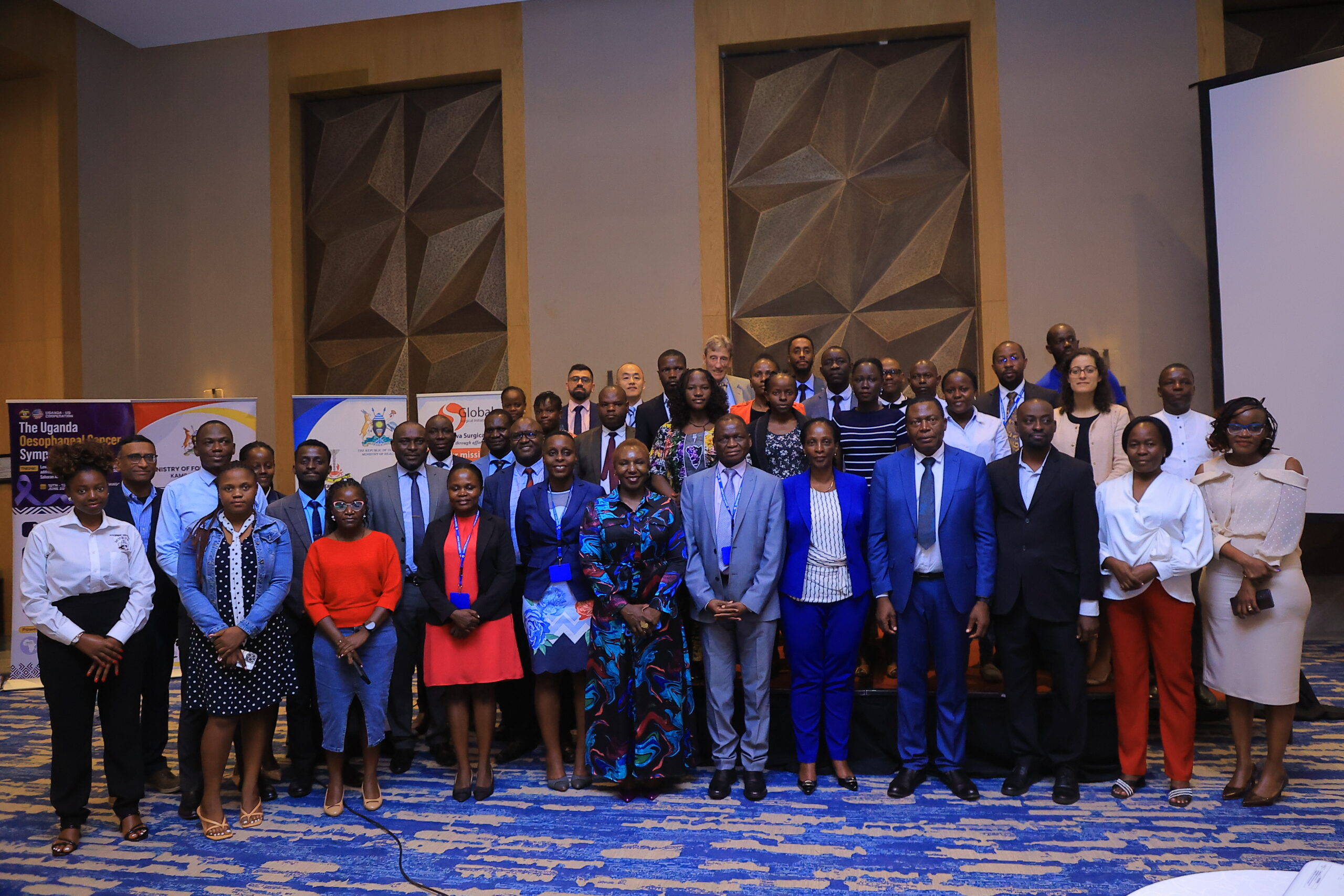The Uganda Embassy in Washington D.C., in collaboration with the Uganda Cancer Institute (UCI) and key partners—AFRECC, Olympus, and Kyabirwa Surgical Center—hosted a high-level Oesophageal Cancer Symposium at Four Points by Sheraton in Kampala.
Held under the theme “Leveraging Science, Innovation, and Technology to Address the Burden of Oesophageal Cancer in Sub-Saharan Africa,” the symposium marked the culmination of a four-day health-focused agenda that began with hands-on surgical training at Kyabirwa Surgical Center in Jinja. During this intensive phase, over 50 patients received life-saving treatment—a tangible outcome that highlighted the real-world value of science when coupled with strategic collaboration.
The symposium was far more than a technical forum—it was a convergence of minds from across the health sector, diplomatic corps, academia, media, and private sector. Grounded in a shared sense of urgency and responsibility, the event blended policy discussions with deeply human stories of survival, caregiving, and clinical innovation in low-resource settings.
Beyond the clinical, the symposium tackled the wider socio-economic and cultural factors influencing the rise in non-communicable diseases. Discussions addressed how public perception, behavior change, and the influence of commercial industries like tobacco and alcohol shape cancer outcomes. The call was clear: Africa must adopt a multi-sectoral approach—combining regulation, education, and innovation—to build more resilient and equitable health systems.

Uganda’s Ambassador to the United States, H.E. Robie Kakonge, framed the symposium within the broader vision of Science and Technology diplomacy, one of the four pillars of her Mission’s mandate. In her remarks, she emphasized the human dimension of cancer.
“Cancer is not just a medical challenge—it’s a deeply human one. Each diagnosis is a story of hope, resilience, and the quiet strength of families and communities,” she said.
Amb. Kakonge highlighted the evolving role of embassies as platforms for development facilitation, not just diplomatic representation. She praised international partners, including the United States and Japan, for their support—not as donors, but as co-creators of a shared future. Her call to “think beyond borders and budgets” resonated powerfully with health professionals, researchers, and funders in attendance.
Echoing these sentiments, H.E. Takuya Sasayama, the Ambassador of Japan to Uganda, reflected on the long-standing Uganda–Japan partnership.
“Our collaboration is not a project. It is a relationship,” he said, pointing to joint efforts in health, cultural exchange, and infrastructure development—including ambulance donations and medical equipment—as “acts of friendship, not charity.”
Representing the Ministry of Health, Dr. Charles Olaro, Director General of Health Services, pledged Uganda’s commitment to early detection, HPV vaccination for girls under 14, and tackling late-stage diagnosis. He also highlighted the growing burden of mental health and the need for integrated, community-based approaches.
“When we delay, we pay,” he warned, alluding to the high human and economic costs of late cancer diagnosis.
Dr. Jackson Orem, Executive Director of the Uganda Cancer Institute, described the event as a “convergence of science, innovation, and diplomacy.” He emphasized that addressing Uganda’s cancer burden requires global cooperation and locally adapted solutions.“We must draw on global partnerships—not only for funding but for co-creation of knowledge. Innovation must be localized, and science must be democratized,” he said.
The event’s outcomes not only reinforced Uganda’s position as a credible regional actor in health diplomacy but also demonstrated its ability to influence global cancer dialogue.